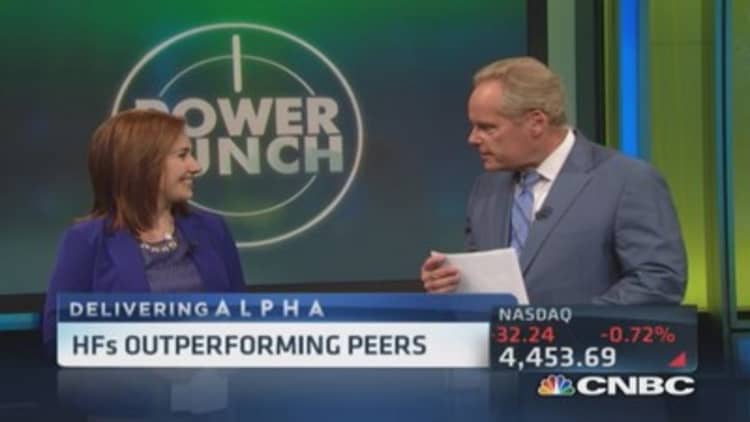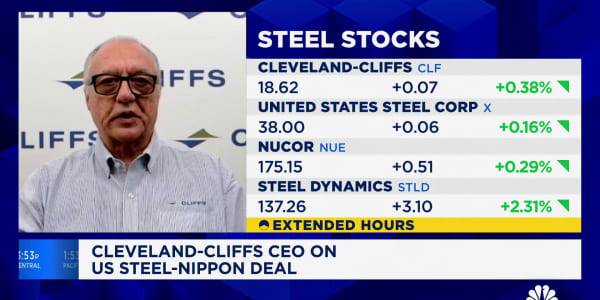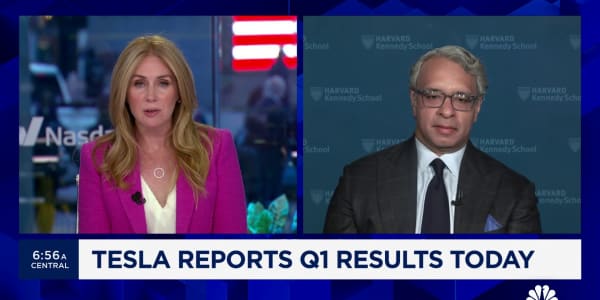
The S&P 500 may have rallied 6 percent during the first half of the year, but the average hedge fund appears to have trailed that substantially—the exceptions being seasoned stock and bond pickers who managed to outperform their peers with careful research and fortunate timing.
Through the end of May, the average fund was up just 2 percent, according to HFR. The hedge fund researcher won't release its end-of-June data until Tuesday, but anecdotal evidence suggests that while the figure may have improved, it will still fall well shy of the benchmark stock market index.
Some of the larger macro players, like the main funds at Moore and Tudor, that bet on worldwide economic trends through a wide swath of stocks, bonds, and currencies, were underwater during the first half of the year, according to a popular hedge fund performance report issued by the British bank HSBC.
Read MoreHo-hum hedge returns no problem for some investors
Others, like Dan Loeb's Third Point, whose flagship fund returned 6 percent through June, and David Einhorn's Greenlight Capital, whose flagship generated nearly 7 percent, were in line with the stock market.
A handful of others, including Bill Ackman's Pershing Square, which returned a remarkable 25 percent through the end of June; York's credit fund, which was up about 12 percent through mid-June; and Glenview's flagship, which was up about 11 percent as of early July, have performed substantially better of late. Those returns are thanks at least in part to targeted bets on specific stocks or bond issuers—including, notably, Pershing Square's big wager on Allergan, the Botox maker that is now Pershing's biggest single holding as it helps rival pharmaceutical company Valeant attempt a hostile takeover.
Going forward, some hedge-fund managers are divided on how the market is likely to behave. Some believe the major stock indexes, which have touched all-time highs recently, are headed for a big fall in the coming months, particularly as market activity slows in July and August, and that the volatility index's seven-year lows are essentially a head-fake.
Read MoreWhy this bullish prosees big market drop soon
"I am convinced that this sanguine environment can't continue," one major long-short fund manager said Monday as the Dow and the S&P came off their all-time highs. "It's too long of the market being too easy and too forgiving."
He said he's buying stocks he likes right now, but also hedging his market exposure by purchasing puts, or the right, but not the obligation, to sell, the major stock indexes at some point in the future—options that would pay off in a downturn.
Still, said another fund manager, economic indicators like the jobs figures and gross domestic product are improving, and the economy continues to have "a lot of slack," a scenario that argues for continued growth.
Read MoreBoom! Job growth accelerates, rate falls to 6.1%
Based on those assumptions, even the much-maligned tech sector looks attractive right now, that fund manager added.
—By CNBC's Kate Kelly






